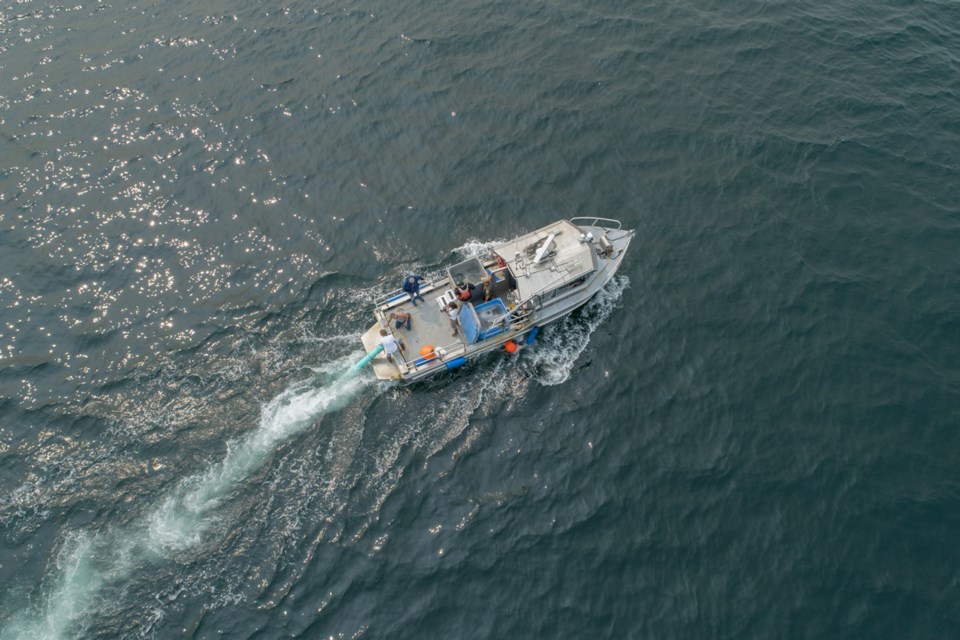Scientists and the Lummi Nation have made an unprecedented attempt to feed live salmon to an emaciated three-year-old female orca in the wild.
Researchers largely viewed the operation as a success, but were unable to determine whether the killer whale, known as J50 or Scarlet, actually ate the fish.
The team out of Friday Harbor, Washington followed and observed the whale Saturday and were able to try feeding her Sunday off San Juan Island.
Over a one-hour period, the team released about eight live salmon directly in front of J50, said Brad Hanson, a wildlife biologist with the U.S. National Oceanic and Atmospheric Administration.
“We did not see her directly take a fish,” he said. “She, for the most part, just seemed to continue to buck into the tide.”
The strong current prevented researchers from backtracking to collect any scale samples from the water in order to determine if J50 had eaten the fish. But Hanson said they were pleased with the outcome nevertheless.
“We were able to deploy the fish very quickly,” he said. “The boat-driving by the Lummi Nation was right on in terms of keeping their distance about 100 metres or so in front of J50 and that was fairly challenging in the currents that we had.
“So, all in all, we were very happy with that particular aspect of the plan. It’s important to remember that this type of thing has never been tried before and there were lots of potential things that could potentially go awry.”
The crews were also able to obtain a fecal sample from a subgroup of whales that includes J50, her mother and a sibling. The sample will be tested to determine if it came from J50 and then analyzed for signs of disease.
Scientists in Canada and the U.S. have become increasingly worried about J50’s health after noticing her malnourished condition in June.
Her survival and reproductive potential is considered crucial to the recovery of endangered southern resident killer whales, whose numbers have dwindled to 75 in recent years.
Last week, a cross-border team of scientists and veterinarians obtained a breath sample from J50 and used a dart to inject her with a broad spectrum antibiotic.
If feeding live salmon to the whale proves successful, that technique may be used to deliver additional medication in the future.
Hanson said the whales appeared to be heading west Monday, so the research team will be on standby until they return to inland waters.
The team has yet to seek approval to feed the whales in Canada as it was deemed most effective to conduct the trial in a known foraging area off San Juan Island and near the Lummi Nation, which is supplying the hatchery fish.
Hanson acknowledged that one of the concerns with feeding whales in the wild is that they’ll learn to associate the fish with boats and people. Researchers tried to guard against that by releasing the fish through a tube running off the boat and into the water.
“They’re quite intelligent and they have very good eyesight so they do pick up on these types of things very quickly, so we’re cognizant of that,” he said. “But our concern is just that we’re in a situation with the condition of the animal that we felt that this was warranted.”
Dr. Martin Haulena, head veterinarian at the Vancouver Aquarium, has described J50’s body condition as “incredibly concerning" and noted last week that other whales in her state have died.
“To us, she is still a critical whale,” he said.
That concern mounted over the weekend as J50 appeared to struggle in strong currents.
“Yesterday and the day before were a bit worrying, because it just seemed like she was essentially slogging along and not necessarily able to keep up with the rest of the whales,” Hanson said.
> Video of southern resident killer whales at NOAA website
https://videos.fisheries.noaa.gov/search?q=Southern%20resident



